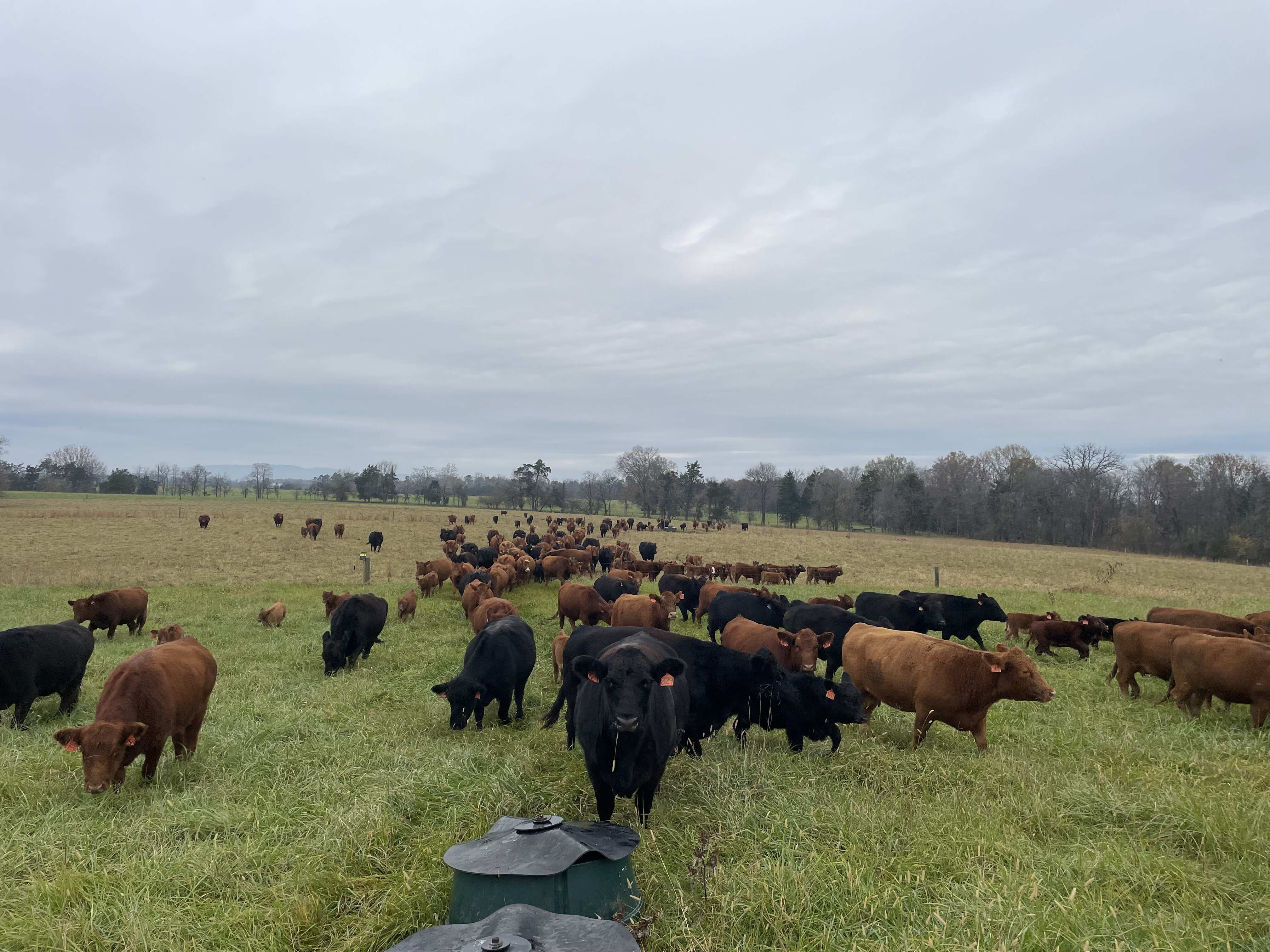A Farm Aesthetic
posted on
September 13, 2023
The Rappahannock Farm Tour is coming up in two weeks! I mowed for the first time in a month last evening due to the lawn simply not needing it with the drought we are experiencing. It has always been one of my favorite chores due to it's meditative nature, but it had me thinking, in a perfect world I would not mow this farm...
This morning Garrett and I were skimming through the latest issue of The Stockman Grassfarmer and I read a blurb of Joel Salatin's Meadow Talk, loosely quoting Allan Nation he said, "Profitable farms have a threadbare look." I think far too often people look to social media, Southern Living, or gosh, even childrens books and get a romanticized idea of what a well cared for farm looks like. I am guilty of this! Rolling white board fences, short manicured pastures, rows of tilled soil in a garden, a large green tractor and bailer, a cupola on the barn roof with a rooster weathervane...this all takes a lot of time and money.
We are in our season of life where all of our time and energy is going into optimizing the health of the soil, forage, animals, and making meaningful relationships with you. One thing should be noted, I married a very resourceful, frugal, threadbare man..I have had to adapt my perception of farm beauty as well as develop a new priority list, both of which has made farming a lot simpler and deeply satisfying.
Rappahannock is a county of beautiful farms, mostly all protected in easement. This is a wonderful thing! Though if we continue to think that of farm aesthetic as what's described above, who is going to be able to afford to be the farmer? The future of farming is the about the land, not the infrastructure. The farm tour is an important opportunity for our business and community, though it comes with a bit of nervousness that this wild, unorthodox look may come off as unaesthetic, we trust that for anyone coming to see our practices and commitment to the land and animals, that this will speak louder than our weathered barn roof.



